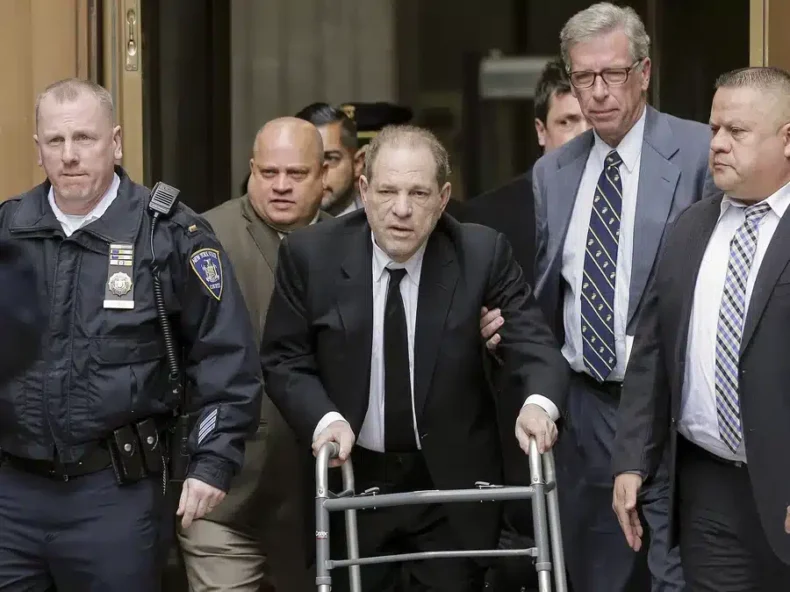Weinstein could receive an additional prison sentence of up to 24 years in California for his convictions of rape and criminal sexual act.

Who is Harvey Weinstein?
Harvey Weinstein was a film producer and former film studio executive who was convicted of sexual assault and rape in 2020. He rose to prominence in the film industry in the 1980s and 1990s, producing and distributing several critically acclaimed and commercially successful films. In 2017, he was accused of sexual misconduct by multiple women, including allegations of sexual assault and rape. These allegations sparked the #MeToo movement, a social media campaign that aimed to raise awareness of the prevalence of sexual harassment and assault.
Weinstein was charged with rape and sexual assault in 2018 and was eventually convicted of two counts of sexual assault in 2020. He was sentenced to 23 years in prison. The accusations and subsequent trial brought widespread attention to the issue of sexual misconduct in the entertainment industry and beyond and led to a greater focus on the need for consent and respect in all aspects of life.

In the wake of the allegations of sexual misconduct against Harvey Weinstein, many Hollywood actors and actresses spoke out against him and expressed support for the victims. Many of these individuals used their platforms and influence to raise awareness of the issue of sexual harassment and assault and to encourage others to speak out against such behavior.
Some of the actors and actresses who spoke out against Weinstein and expressed support for the victims include:
- Meryl Streep
- Jennifer Lawrence
- Gwyneth Paltrow
- Angelina Jolie
- Rose McGowan
- Asia Argento
- Salma Hayek
These individuals, along with many others, used their voices and their visibility to speak out against sexual misconduct and to support the victims of such crimes. Their efforts helped to bring widespread attention to the issue of sexual harassment and assault and to encourage others to speak out and take action against these types of crimes.

During the trial of Harvey Weinstein, the prosecution presented many pieces of evidence to prove the allegations of sexual assault and rape against him. This evidence included testimony from the victims, as well as physical evidence and documentation.
One key piece of evidence was the testimony of the victims, who provided detailed accounts of the sexual assaults and rapes that they alleged were committed by Weinstein. This testimony was used to establish the events that occurred and to provide a sense of the pattern of behavior that Weinstein was accused of.
Other pieces of evidence that were presented in the trial included:
- Physical evidence such as DNA samples were collected from the victims and used to connect Weinstein to the crimes.
- Medical records, which documented the injuries sustained by the victims.
- Phone records, which showed calls and texts between Weinstein and the victims, were used to establish a pattern of communication.
- Emails and other communications provided further context and evidence of the relationships between Weinstein and the victims.
This evidence, along with other testimony and evidence presented in the trial, was used to establish the charges of sexual assault and rape against Weinstein, and ultimately resulted in his conviction













